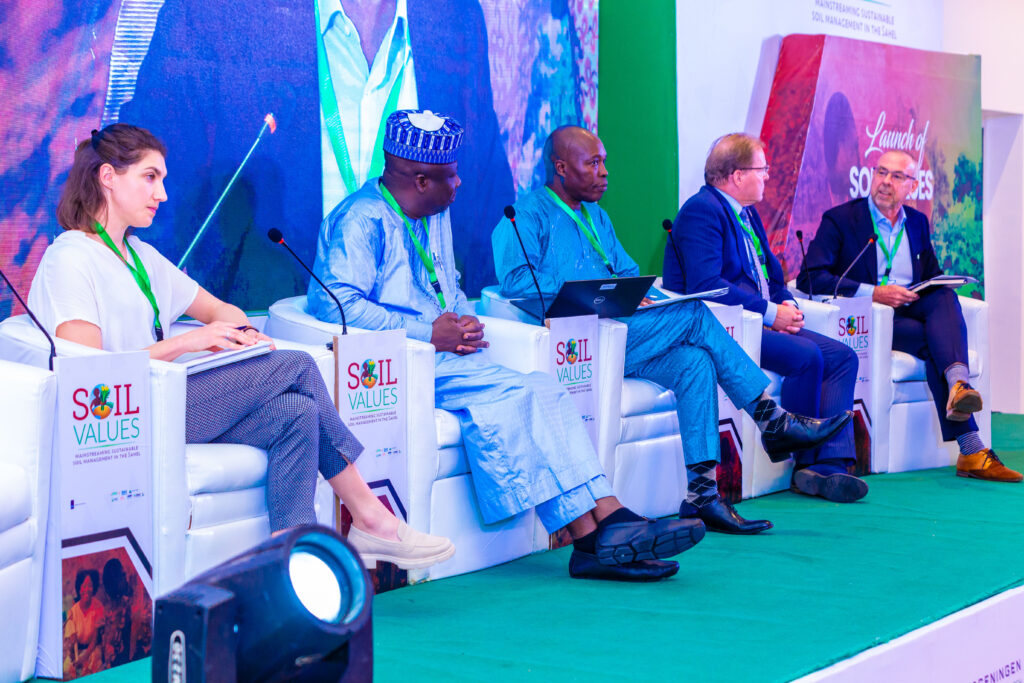
The launch of the Soil Values program began a great venture for the benefit of agricultural producers in the Sahel. On April 16 in Abuja, the federal capital of Nigeria, the event brought together consortium members, partners, and other agricultural development stakeholders operating in Africa. This unique opportunity allowed attendees to discover the program’s very substance, ask questions for clarification, and meet and discuss face-to-face with all stakeholders.
Soil Values aims to improve the productive capacity of two million hectares of agricultural land in the Sahel, and its interventions will make it possible to optimize the management of landscapes, watersheds, and small-scale irrigation systems. Soil Values will also collaborate with various national programs. The official launch of this regional program confirms the effective start of activities in the four countries of intervention: Burkina Faso, Mali, Niger, and northern Nigeria, in addition to two strategic countries: Ghana and Côte d’Ivoire.
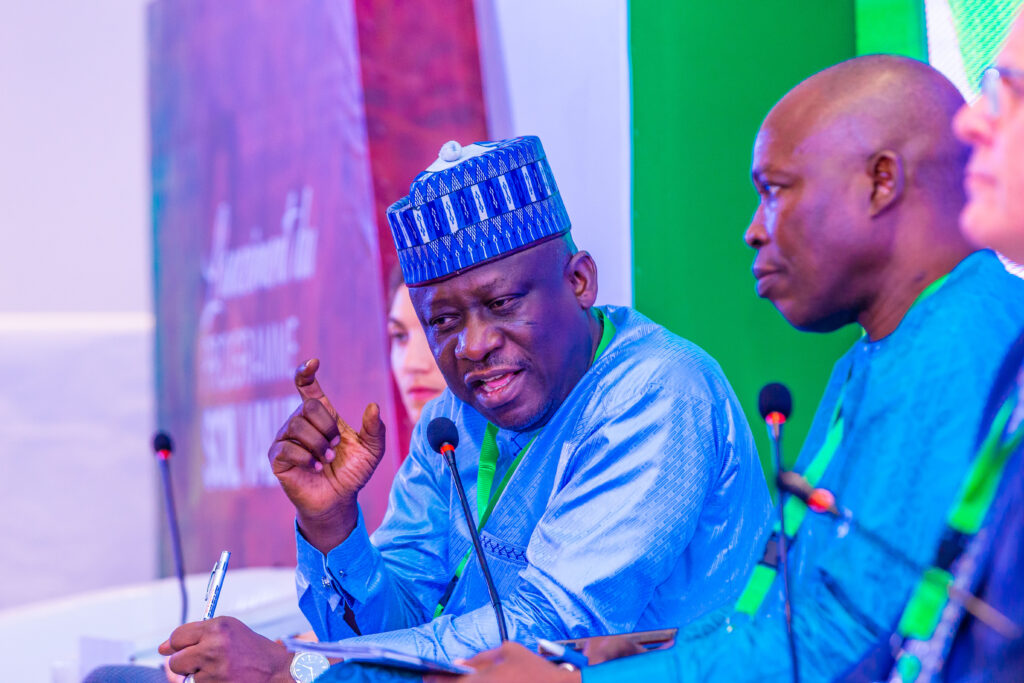
The agricultural development stakeholders who attended the launch of Soil Values deepened their understanding of the program’s planned actions and goals, encouraging ongoing collaborations. Soil Values Program Director Dr. Bidjokazo Fofana presented the context of Soil Values interventions, highlighting the multiple challenges facing Sahelian countries, such as recurrent droughts, conflicts, desertification, climate shifts, and the low adoption rate of climate-resilient practices. These factors contribute to the decline of soil fertility and health, which is further compromised by insufficient investments and inadequate mechanisms.
“Healthy soils constitute an important asset for Sahelian agriculture.”
Dr. Bidjokazo Fofana, Soil Values Program Director
Statements by Wouter Plomb, Ambassador of the Netherlands to Nigeria and representative of the Directorate-General for International Cooperation (DGIS) of the Netherlands, and André de Jager, Managing Director of the Agriculture and Energy sectors at SNV, also highlighted the importance of this initiative. In their remarks, they stressed that the resilience of agricultural producers in the Sahel, including the improvement of their income, closely depends on the health and fertility of the soil.
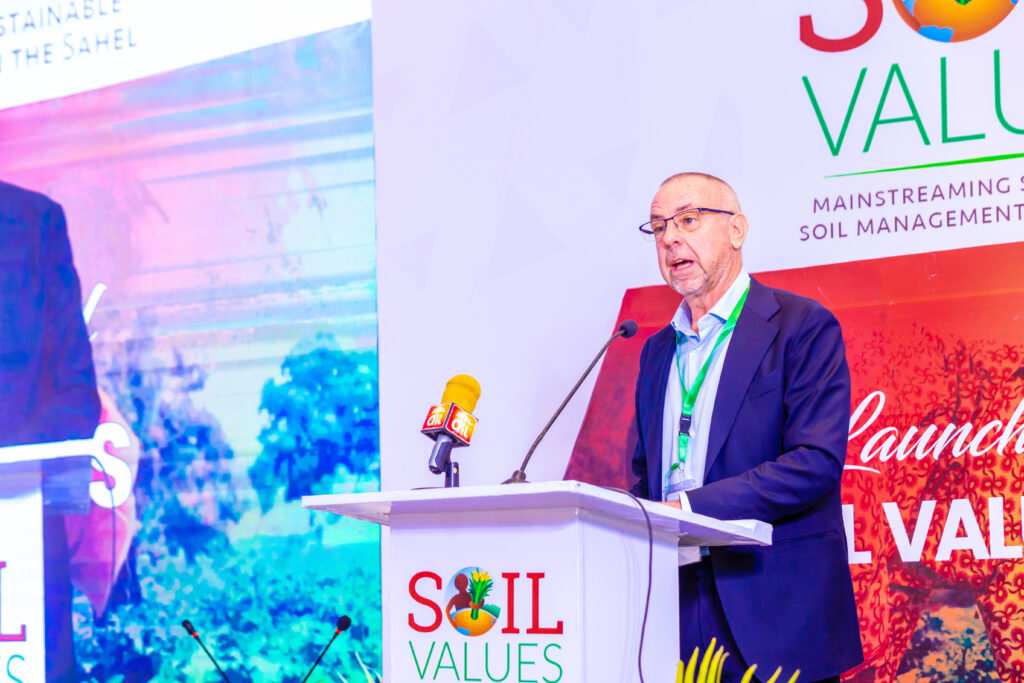
The Soil Values program’s commitment to improving soil fertility is implemented in part by IFDC, which is commemorating its 50th anniversary this year, marked by intense strategic interventions in Africa and around the world. President and CEO of IFDC Henk van Duijn stated, “IFDC will not only commemorate its past, but also propose innovative solutions to the challenges related to soil health,” and specified that “IFDC will maintain its vision of research, development, and transfer of effective technologies for nutrient use and soil health.”
Thanks to the major transformations expected, Soil Values has obtained the benefit of support from development stakeholders in Africa. The Nigerian ministries in charge of agriculture, food security, environment, and water remain convinced of the importance of the program for agricultural development, increased productivity, and sustainable management of natural resources. Accordingly, Dr. Kingsley Uzoma, Senior Special Assistant on Agribusiness and Productivity Enhancement and representative of the Vice President of Nigeria Kashim Shettima assured attendees that the Federal State of Nigeria and the respective ministries were available to work in collaboration with Soil Values to achieve lasting results.
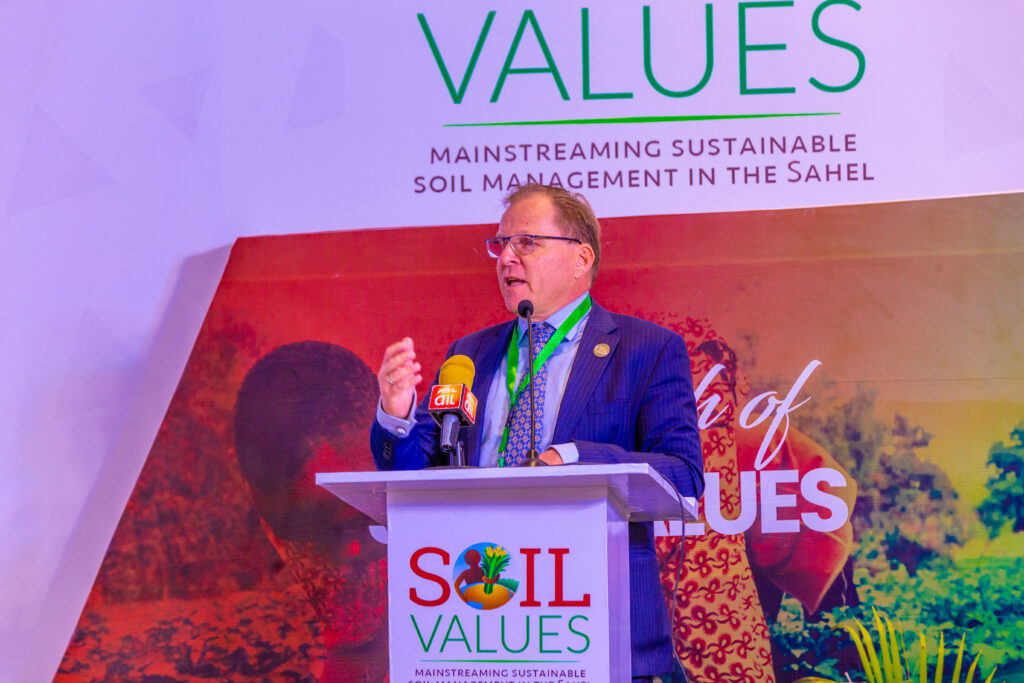
Alain Sy Traoré, the representative of the Economic Community of West African States (ECOWAS), expressed his satisfaction with the implementation of this regional initiative and voiced his confidence in the capacity of the consortium members to meet challenges through active collaborations. Additionally, Professor Han van Dijk of Wageningen University and Research (WUR) highlighted the university’s continued commitment to working collaboratively to strengthen the knowledge of African organizations and universities on soil health.
The regional launch of Soil Values also featured three discussion panels, which promoted dialogue on the actions and strategies of the Soil Values program.
The first panel focused on the integration of sustainable soil management in the Sahel and provided an opportunity to discuss and structure strategies to promote healthy soils for resilient agriculture. Panelists highlighted the importance of integrating soil health management into research, extension, policy, and the private sector for sustainable development. In addition, particular attention was given to the inclusion of women in interventions aimed at knowledge transfer and access to resources and technologies for more resilient soil management.
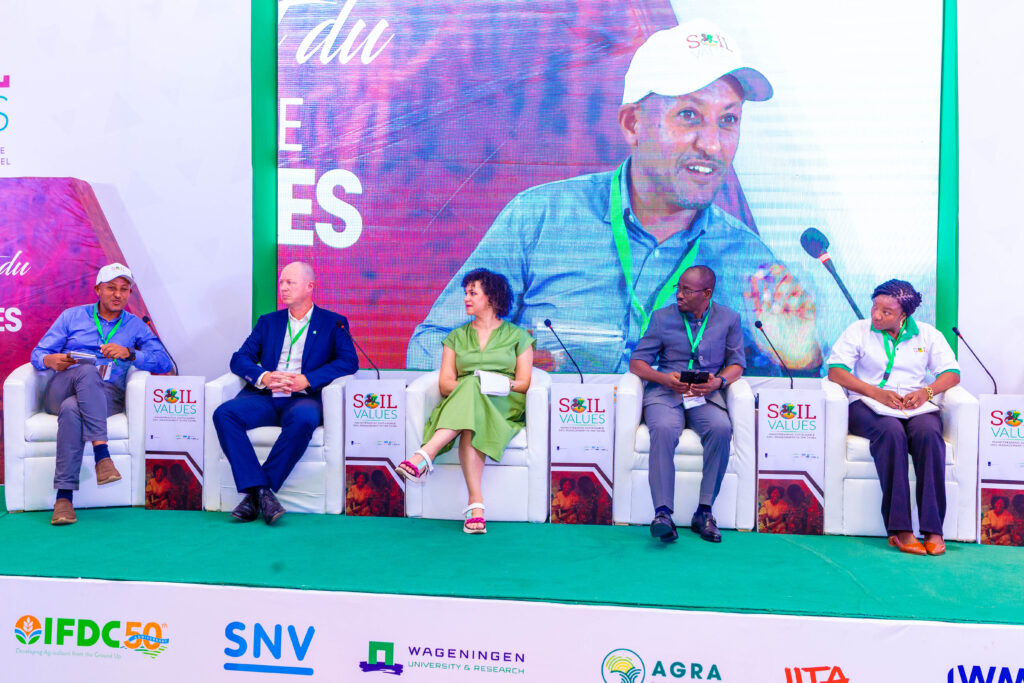
The second panel, which focused on the development model proposed by Soil Values for achieving large-scale impact, explored the prerequisites for program effectiveness as well as ways to coordinate the efforts of donors, implementing actors, and beneficiaries to reach this goal. Suggestions were made to the coordination team on this topic to help ensure the success of the development model.
The third panel was dedicated to strengthening soil fertility as a long-term initiative requiring collective investment, and it examined long-term investment opportunities to improve soil fertility and health in West Africa. Speakers highlighted that Soil Values represents a major investment in development assistance to improve soil health, and called for additional investments to ensure efforts are integrated and sustainable.
As activities commence, IFDC and its partners anticipate seeing tangible improvements in food security, livelihoods, and environmental resilience from the Soil Values program, reflecting the transformative impact of collaborative efforts in addressing complex challenges in the Sahel.
Soil Values is implemented by IFDC, in collaboration with lead partners SNV and Wageningen University and Research (WUR), as well as knowledge partners, such as AGRA, World Agroforestry (ICRAF), the International Institute of Tropical Agriculture (IITA), ISRIC – World Soil Information, and the International Water Management Institute (IWMI).




